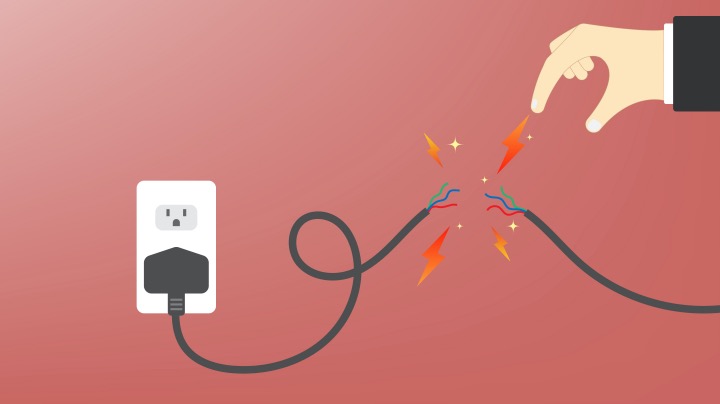Leading Tips for Effective Electric System Troubleshooting
Troubleshooting electric systems requires a systematic method, grounded in a thorough understanding of electrical principles and safety protocols. The nuances of efficient repairing extend past plain technical knowledge; understanding just how to record searchings for and focus on security can substantially affect outcomes.
Understand the Basics
Recognizing the essentials of electrical systems is necessary for efficient troubleshooting, as a solid structure permits professionals to diagnose and solve concerns much more effectively. A detailed grasp of electric principles, such as voltage, existing, resistance, and power, is important in identifying the origin of problems. Voltage is the electric possible difference that drives present via a circuit, while resistance opposes the flow of existing, impacting the overall capability of the system.
Familiarity with circuit elements, including resistors, capacitors, diodes, and switches, is additionally critical. Each component plays a distinct function in circuit habits and can impact performance when malfunctioning. Furthermore, comprehending series and identical circuit setups is crucial, as these setups influence the distribution of voltage and existing within the system.
Service technicians need to be conscious of possible dangers, such as shock and brief circuits, to apply risk-free troubleshooting methods. By mastering these foundational ideas, technicians boost their capability to conduct effective diagnostics and repairs, inevitably leading to improved efficiency and reliability of electrical systems (electrical system troubleshooting).
Gather Necessary Devices
Efficient troubleshooting of electrical systems calls for the ideal set of tools to detect and solve problems precisely. A well-appointed specialist can considerably improve effectiveness and efficiency in identifying issues. Necessary tools consist of a multimeter, which determines voltage, existing, and resistance, permitting for accurate assessments of electric parts. Secure meters are additionally useful for gauging existing without separating the circuit, making certain safety and benefit.
In addition, protected hand tools such as screwdrivers, pliers, and cord pole dancers are crucial for safely controling electric links. It is additionally advisable to have a circuit tester accessible to confirm the existence of voltage in electrical outlets and wires. For more complex systems, a thermal imaging video camera can aid discover overheating parts, showing potential failures.

Adhere To an Organized Approach
Having actually gathered the suitable devices, the next action in repairing electrical systems is to adhere to a systematic technique. A systematic strategy makes sure that specialists can recognize mistakes successfully and precisely, minimizing downtime and preventing unneeded repair work.
Begin by reviewing the system's schematic layouts and specs. This involves checking each part methodically, starting from the power source and working in the direction of the load.
Make use of testing equipment, such as multimeters and oscilloscopes, to gather objective information regarding voltage, present, and resistance at different points within the system. This empirical evidence will assist your troubleshooting initiatives and aid to validate or get rid of possible root causes of failing.
Additionally, consider ecological factors that may affect the system's performance, such as temperature level fluctuations or dampness ingress. A detailed evaluation of circuitry, links, and components will make sure that all possibilities are accounted for.
File Your Searchings For
Complete paperwork is important in the repairing procedure of electric systems. Accurate documents boost the efficiency of recognizing repeating problems and assist in communication among employee. Each searching for should be meticulously kept in mind, consisting of signs observed, tests performed, and the results of those tests. electrical system troubleshooting. This practice not only help in understanding the root cause of the trouble however additionally works as a reference for future repairing efforts.

In addition, preserving a log of parts changed or repair services performed is important. This details supports inventory monitoring and can aid examine the long life and dependability of particular components.
Eventually, the paperwork procedure must be complete yet concise, allowing easy access and testimonial - electrical system troubleshooting. By focusing on comprehensive documentation, specialists can develop a useful knowledge base that not only help in current troubleshooting however likewise equips future upkeep efforts, thus improving total system dependability

Prioritize Safety And Security Procedures
Recognizing the inherent risks connected with electrical systems is critical for making certain security throughout troubleshooting. Electric shock, burns, and devices damage are simply a few of the possible threats that specialists face. Focusing on security about his procedures is not only a lawful obligation yet additionally a moral essential that safeguards both the professional and the surrounding environment.
Prior to commencing any troubleshooting job, technicians should wear proper personal protective devices (PPE), including protected handwear covers, safety and security glasses, and flame-resistant garments. Making certain that the workspace is completely dry and complimentary of clutter can substantially lower the danger of accidents. It is vital to de-energize circuits prior to beginning any job, verifying that they are not live via the use of a multimeter or voltage tester.
Developing clear interaction procedures with team members is additionally vital; this makes sure that every person is conscious of potential risks and the standing of the electrical system being dealt with. Last but not least, having an emergency reaction strategy in position can show view it now very useful in case of an occurrence. By focusing on safety actions, professionals can efficiently reduce risks and promote a more secure work environment.
Conclusion
Efficient electric system fixing depends on an extensive understanding of basic principles and a methodical method. By collecting vital devices, adhering to organized analysis techniques, and diligently recording findings, the repairing procedure becomes a lot more effective and trusted. Focusing on precaution guarantees the wellness of people involved and the stability of the electrical system. Applying these strategies will enhance the repairing experience, leading to quicker resolutions and boosted operational performance in electric systems.
Comments on “Streamline efficiency with innovative mechanical system optimisation support.”